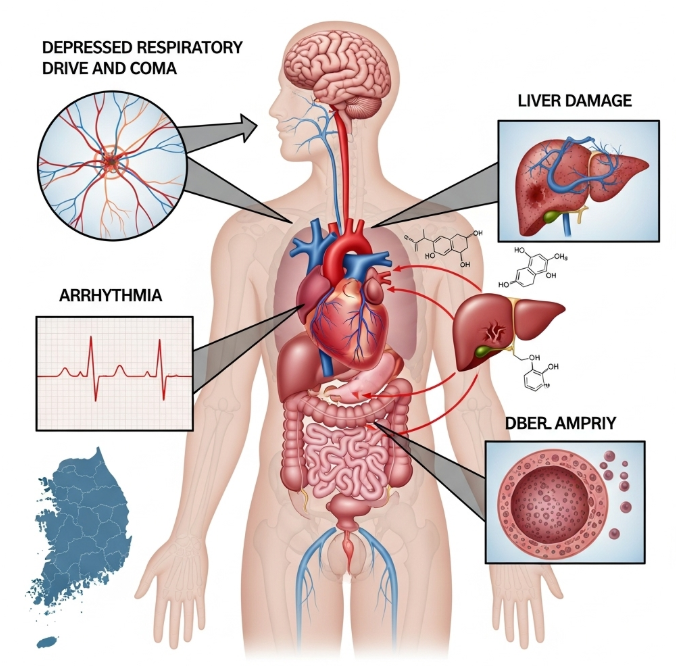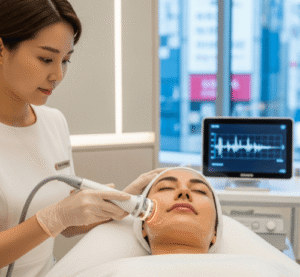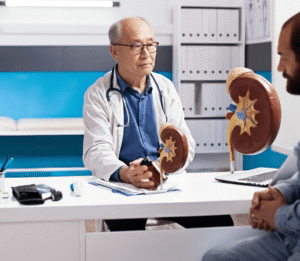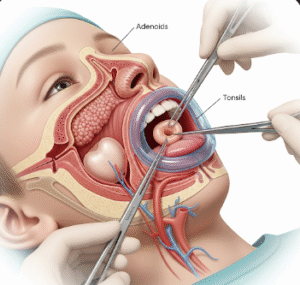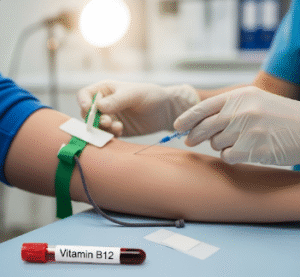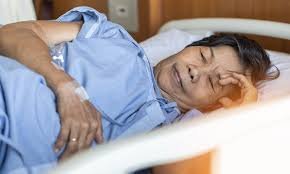Overview
A drug overdose occurs when a person takes a higher dose of medication, prescription drugs, over-the-counter medicine, or illicit substances than the body can safely handle. Overdose can be accidental (due to medication misuse, confusion, or interactions) or intentional (linked to self-harm or substance abuse).
In Korea, drug overdose is a growing public health issue due to the rise in prescription medication use, psychiatric drug misuse, and recreational substance abuse. Korean hospitals are well-equipped with emergency care systems, poison control centers, and intensive care units to manage drug overdoses promptly. In many cases, survival depends on early recognition, emergency response, and access to advanced critical care, all of which are highly available in Korea.
What is Drug Overdose?
Drug overdose refers to toxic effects caused by ingesting or injecting a drug in quantities exceeding therapeutic levels. Overdose may affect the nervous system, heart, liver, kidneys, or respiratory system, leading to severe complications or death.
Types of overdose:
- Acute overdose: Single large dose (common in suicide attempts or recreational use).
- Chronic overdose: Repeated smaller doses building up over time (e.g., liver damage from acetaminophen).
Symptoms
Symptoms vary depending on the drug type, amount, and time elapsed.
General symptoms include:
- Nausea, vomiting, abdominal pain
- Drowsiness, confusion, agitation
- Slow or irregular breathing
- Dilated or pinpoint pupils
- Seizures
- Loss of consciousness
- Cold, clammy skin or bluish lips
Severe complications may include:
- Respiratory arrest
- Heart arrhythmias or cardiac arrest
- Coma
- Multi-organ failure
- Death
Causes
Drug overdoses can be caused by:
- Accidental misuse: Wrong dose, mixing medications, or confusion in elderly patients.
- Intentional overdose: Attempted suicide or self-harm.
- Substance abuse: Overuse of alcohol, opioids, stimulants, or sedatives.
- Drug interactions: Combining certain medications (e.g., opioids with alcohol or benzodiazepines).
Common drugs involved in Korea:
- Prescription sedatives & sleeping pills (benzodiazepines, zolpidem)
- Painkillers (opioids, acetaminophen)
- Psychiatric medications (antidepressants, antipsychotics)
- Recreational substances (amphetamines, ecstasy, and alcohol)
Risk Factors
- Young adults experimenting with recreational drugs
- Elderly patients with multiple prescriptions (polypharmacy)
- Individuals with mental health conditions (depression, anxiety, suicidal ideation)
- History of substance use disorder
- Lack of medical supervision when using strong painkillers or sedatives
Complications
If untreated, overdose can cause:
- Brain damage due to lack of oxygen
- Kidney or liver failure
- Aspiration pneumonia (vomit inhaled into lungs)
- Coma or permanent disability
- Death
Prevention
- Safe prescription practices by Korean doctors
- Patient education about correct dosage
- Avoiding mixing drugs with alcohol
- Monitoring patients with a history of overdose or psychiatric illness
- Family and caregiver vigilance for at-risk individuals
- National efforts in Korea to improve mental health support and drug abuse prevention
Treatment Options in Korea
Diagnosis
At emergency departments, doctors quickly assess overdose patients with:
- History from family, friends, or medical records
- Blood and urine toxicology tests
- Electrocardiogram (ECG) for heart rhythm
- Liver and kidney function tests
- Imaging scans if internal complications are suspected
Emergency Medical Treatments
- Activated charcoal: Given if overdose is recent, to absorb the drug.
- Gastric lavage (stomach pumping): Rarely used, only in life-threatening cases.
- Antidotes (specific drugs that reverse toxicity):
- Naloxone for opioid overdose
- Flumazenil for benzodiazepine overdose
- N-acetylcysteine (NAC) for acetaminophen poisoning
- IV fluids to maintain hydration and blood pressure
- Oxygen therapy & mechanical ventilation for breathing support
- Hemodialysis (in severe poisoning such as lithium, methanol, or aspirin overdose)
Intensive Care & Advanced Therapies
Korean tertiary hospitals provide advanced overdose management:
- Critical care monitoring in ICU for organ function
- Extracorporeal membrane oxygenation (ECMO) for severe heart/lung failure
- Psychiatric intervention after stabilization for intentional overdoses
Rehabilitation & Support
- Mental health counseling for patients with intentional overdoses
- Substance abuse rehabilitation programs (hospital-based and community-based)
- Family counseling for relapse prevention
- Support groups and ongoing psychiatric follow-up

